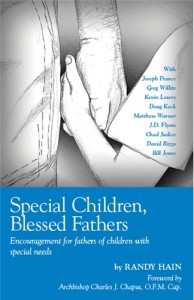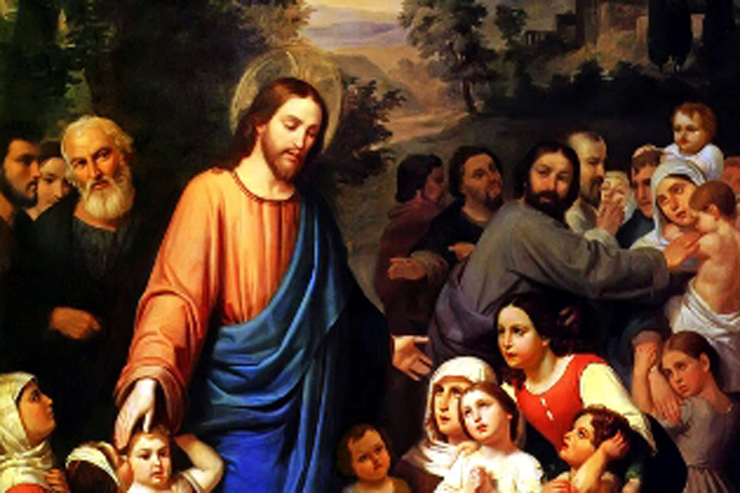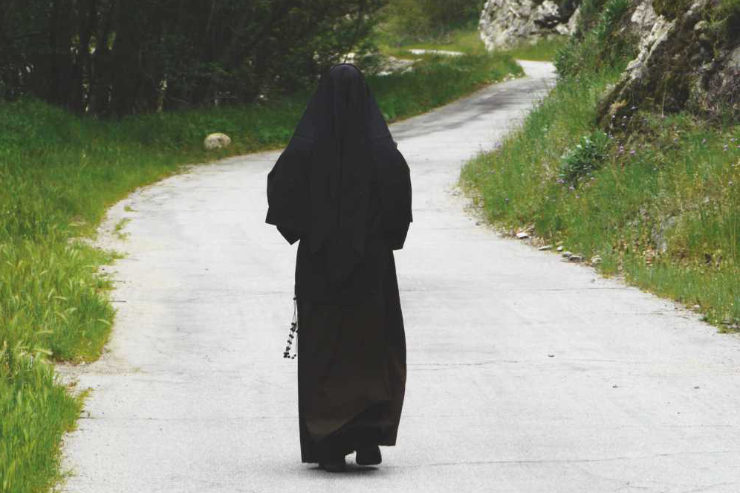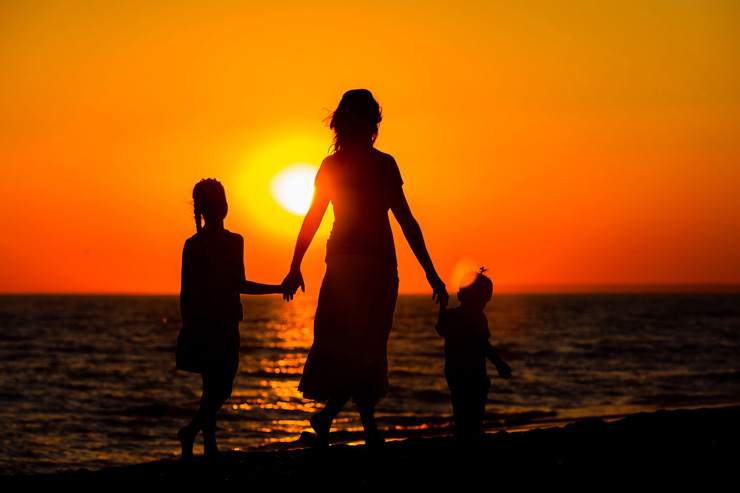She sat in the first pew, directly in front of our parish’s beautiful gold tabernacle. She was dressed for the occasion, donning a simple white dress and she had a small lace veil clipped into her hair. Her excitement over the upcoming event left her wiggly and every few minutes, she’d look over at her teacher and flash a grin as big as California.
I usually see this little girl most Sunday mornings at the 10:30 am Mass my family attends. She comes with her own family and sits in the same place. Our parish is gigantic, touting a registry of at least 10,000 people, but I always notice this 8-year old because she is so full of life.
She also has Down syndrome.
On this particular Sunday, she was the only child in the parish to receive her First Communion and she did so with great joie de vivre. After Jesus was placed on her tongue, she flashed Father a high voltage smile and skipped back to her pew.
Her example made me wish I received Christ with as much gusto.
I went back to my prayers, but when I looked up again, I noticed a father guiding his son up to Communion. This father/son duo attend the 10:30 am Mass on Sundays and they always sit together. Sometimes they attend Mass with the entire family and sometimes it’s just the two of them, but the father always sits right next to his boy.
The boy is a teenager, usually sports a pair of jeans and a polo shirt, and is autistic. He pats the ground every few feet as he walks up to Communion, his head swaying rhythmically as he walks. Sometimes he makes sounds from his pew, but I’ve never seen the father react harshly to him, something other parishioners might not be able to say about my own mothering.
As the father and son settled back into their pew, I tried to refocus on my prayers, but I have the attention span of a jack rabbit, so it wasn’t long before I was gazing at the Communion line again. This time, I noticed an acquaintance, the mother of two blind children, guiding her little ones up to receive Jesus.
I started to weep.
I wept not because I felt sorry for or saddened by the challenges these three families face, but because I was moved by the obvious and palpable love that exists between these parents and their children.
I wept because it’s impossible not to notice the delicate care and concern the parents have for their kids.
I wept because these families–their witness–they are what it means to be Catholic.
I wept because these parents in my parish–and the many other Catholic parents around the country like them– promote and protect lives that others might see as “limited”. These parents are devoted to children who are special and gifted, though the outside world might have trouble recognizing these gifts.
The timing of my experience at Mass was not a fluke because sitting on my nightstand was a copy of Randy Hain’s new book Special Children, Blessed Fathers: Encouragement for fathers of children with special needs. Hain’s newest book is a written reflection of what I saw at Mass that Sunday morning—parents devoted to their children, facing a particular set of challenges (including Down Syndrome, autism and others), and acting as much needed Catholic witnesses.
 When I saw the book cover for Special Children, Blessed Fathers for the first time, it struck me how much the Church needs a book like this today. Catholic parents in general, whether you are the parent of a special needs child or not, are yearning for encouragement in their vocations. We are desperately needy for someone a little bit farther down the parenting path than we are to say to us,
When I saw the book cover for Special Children, Blessed Fathers for the first time, it struck me how much the Church needs a book like this today. Catholic parents in general, whether you are the parent of a special needs child or not, are yearning for encouragement in their vocations. We are desperately needy for someone a little bit farther down the parenting path than we are to say to us,
“Yes, this is hard, this is going to hurt you, but persevere! You are doing a good job and you can do it! Parenting these kids in this culture will be hard and it will be messy, but the journey is worth it!”
Given how much we Catholic parents covet that kind of encouragement, I think it’s odd that a book written to bolster the spirits of the parents of special needs children–parents who face different challenges and who struggle valiantly over their children’s welfare–has never been written.
Until now, that is.
Hain’s book does what no other book has done before: compiles the personal accounts of fathers with special needs children and places them into a parenting go-to guide of encouragement. The excerpts from these men offer an unfiltered look into their lives and the blessings and the challenges of raising special needs children. In addition to the personal perspectives offered by the contributors, Hain also shares his own personal experiences as the father of his high functioning autistic son, Alex. Sprinkled through out the book are candid observations from others who share a unique perspective on the lives of fathers with special needs children.
One of the most beneficial aspects of this book is the support other special needs father’s will receive from the contributors’ experiences. It’s a fact: men need the witness and example of other, good men. They need support and encouragement from the other fathers in the trenches who struggle with the same issues. Any dad can benefit from reading about other dads–men just like them–who have embraced their children and applied themselves to their vocation as fathers.
But women will benefit from this book, too.
This manuscript will give wives and mothers a glimpse into the perspectives of their husbands and will shed light into the best ways to support their husbands. It will allow women to better understand the guilt and even misplaced priorities these well-intentioned fathers often experience.
Though I usually only interact with the special needs children and their families at my parish on Sunday mornings, their witness has ministered to me in profound ways. I’m so glad Hain took the time to write a book specifically for special needs dads, men who walk a particularly narrow path, because these men need the encouragement. They need edification and support in the journey because their work of evangelizing the likes of me is tremendous.















